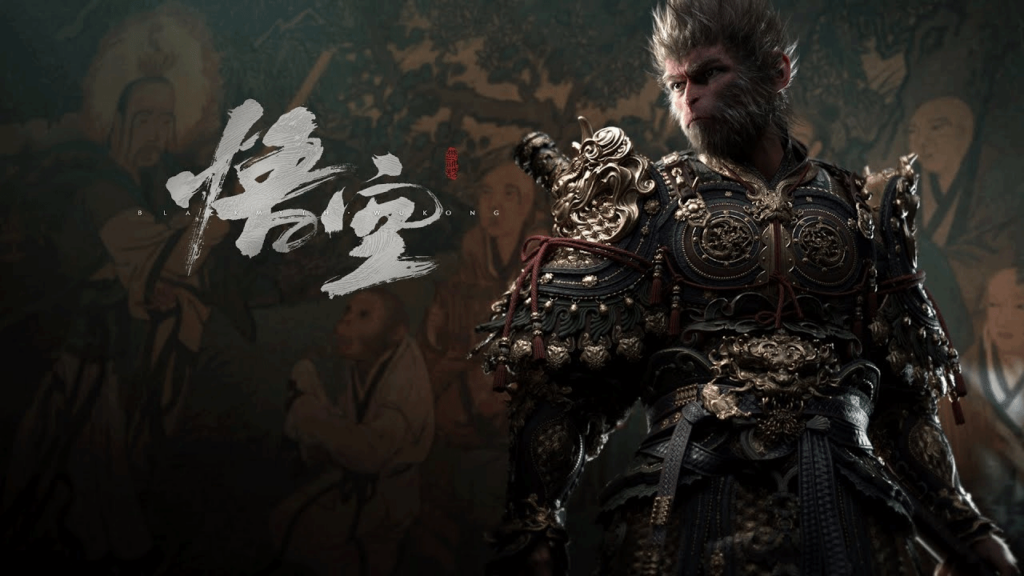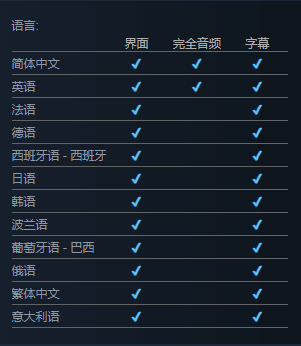Since its initial announcement, “Black Myth: Wukong,” an action role-playing game developed by Chinese game company Game Science, has captivated the attention of players worldwide. The game has become a hot topic in the gaming community due to its exceptional graphics, rich action system, and profound cultural background. Its unique interpretation of the classic Chinese literary work Journey to the West has sparked global interest. However, as the hype surrounding “Black Myth: Wukong” continues to grow, the issue of game localization has emerged as a focal point of discussion.

Localization: More Than Just Translation
In today’s globalized world, the gaming industry has become a significant vehicle for cultural dissemination, and game localization is the key to making this cultural exchange possible. For a game targeting the global market, localization is not merely about translating text into different languages; it is about adapting the game content to the cultural context of the target markets, ensuring that it is both understood and accepted by players from different cultural backgrounds.
“Black Myth: Wukong” faces considerable challenges in this regard. As a game deeply rooted in Chinese classical literature, it contains a wealth of cultural elements and nuances unique to China. The characters, settings, storylines, and dialogues are all intricately woven into the fabric of Chinese culture. The core challenge of localization lies in making these elements resonate with players worldwide.
Cultural Differences and Localization Challenges
Take the example of Italian players. Despite “Black Myth: Wukong” supporting 11 languages, Italian is not one of them. This omission has led to dissatisfaction among Italian players, some of whom have even started a campaign stating, “No Italian, no purchase.” This scenario not only highlights players’ expectations for native language support but also underscores the importance of multilingual support in the localization process.

The cultural differences are even more complex. English-speaking players, after trying out “Black Myth: Wukong,” have expressed concerns that certain details might be lost in translation, even with English subtitles and voiceovers. For example, the accent of the character Tiger Vanguard instantly signals to Chinese players that it is a Northeastern Tiger, but this subtle cultural cue might be entirely lost on foreign players. Additionally, concepts unique to Chinese culture, such as the distinction between mana in xianxia (immortal hero) novels and inner strength in wuxia (martial hero) novels, may present significant challenges for players unfamiliar with Chinese cultural backgrounds.
These issues reveal that game localization involves not just language translation but also cultural adaptation. The Game Science team must consider how to adapt the game on a cultural level to ensure that foreign players can understand and appreciate the game’s core content.
Game Science Team’s Strategy for Localization
To tackle these localization challenges, the Game Science team needs to adopt a multi-faceted approach. First, in terms of language translation, the team should collaborate with experts in various languages and cultures to ensure the accuracy and naturalness of the translations. Additionally, they must conduct in-depth research on cultural aspects to identify elements that could cause misunderstandings and find appropriate ways to convey them so that they can be understood by foreign players.
Second, the Game Science team might consider incorporating more cultural explanations and background information within the game. For example, they could add optional cultural annotations that help foreign players better understand the cultural significance of various elements within the game. This approach would not only preserve the game’s cultural uniqueness but also enhance the gaming experience for international players.
Furthermore, the team should actively seek feedback from players during the localization process. The actual experiences of players serve as crucial references for localization work. By collecting and analyzing feedback from players in different countries and regions, the team can continuously refine and adjust their localization strategies to improve the game’s international appeal.
Cultural Collisions in the Globalization Era
The localization challenges of “Black Myth: Wukong” reflect the complexities of cultural collisions in the era of globalization. In this context, games are not merely entertainment products but also mediums for cultural exchange. Through games, localization teams have the opportunity to convey the essence of Chinese culture to players around the world, helping them understand and appreciate it.
However, this also means that localization teams must strike a balance between cultural dissemination and cultural adaptation. On one hand, they need to preserve as much of the game’s cultural uniqueness as possible, allowing players to experience the distinct charm of different cultures. On the other hand, they must consider the cultural receptiveness of the target market, ensuring that the game content is widely understood and accepted.
Future Outlook
“Black Myth: Wukong” undoubtedly marks a significant breakthrough for China’s gaming industry. It not only showcases the capabilities of Chinese game developers but also opens new avenues for the international dissemination of Chinese culture. However, the game’s success depends not only on its technological and content excellence but also on its ability to be effectively localized for global audiences.
As the release date for “Black Myth: Wukong” approaches, the Game Science team faces immense pressure to localize the game. But we have every reason to believe that, with their expertise and deep understanding of cultural exchange, the team will be able to overcome these localization challenges, winning the hearts of players around the world and establishing “Black Myth: Wukong” as a truly international game.
In the future, we hope to see more Chinese-made games like “Black Myth: Wukong” make their way onto the global stage. By continually innovating in localization, these games can offer global players an enjoyable experience while also helping them better understand and appreciate Chinese culture. This is not only a step forward for the games themselves but also a positive contribution to the global influence of Chinese culture.
Jin Yu Translation’s Game Localization Services
In the trend of game globalization, localization has become a critical factor for the success of a game. Jin Yu Translation possesses extensive experience in game localization. We understand that localization is more than just translating words—it is about bridging cultures. Our professional team is proficient in multiple languages and deeply understands the cultural nuances of various target markets. Whether it involves translating complex texts or adapting cultural backgrounds, we provide high-quality localization services to ensure the smooth release and widespread acceptance of games in global markets. Through our localization services, we help games like “Black Myth: Wukong” resonate across different cultural contexts, achieving true internationalization.
